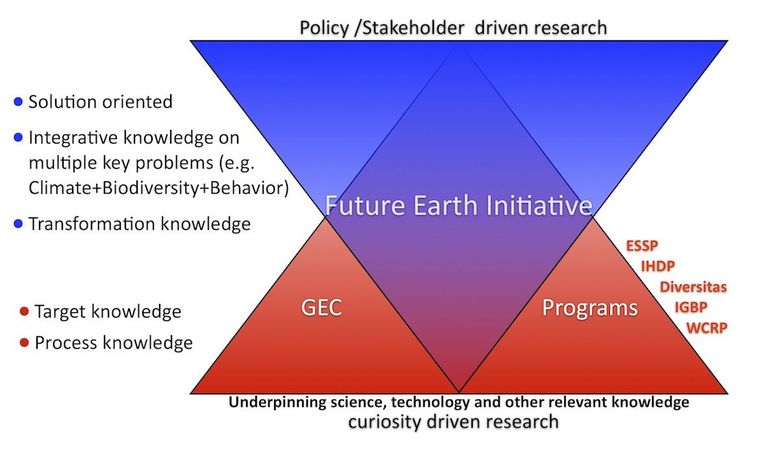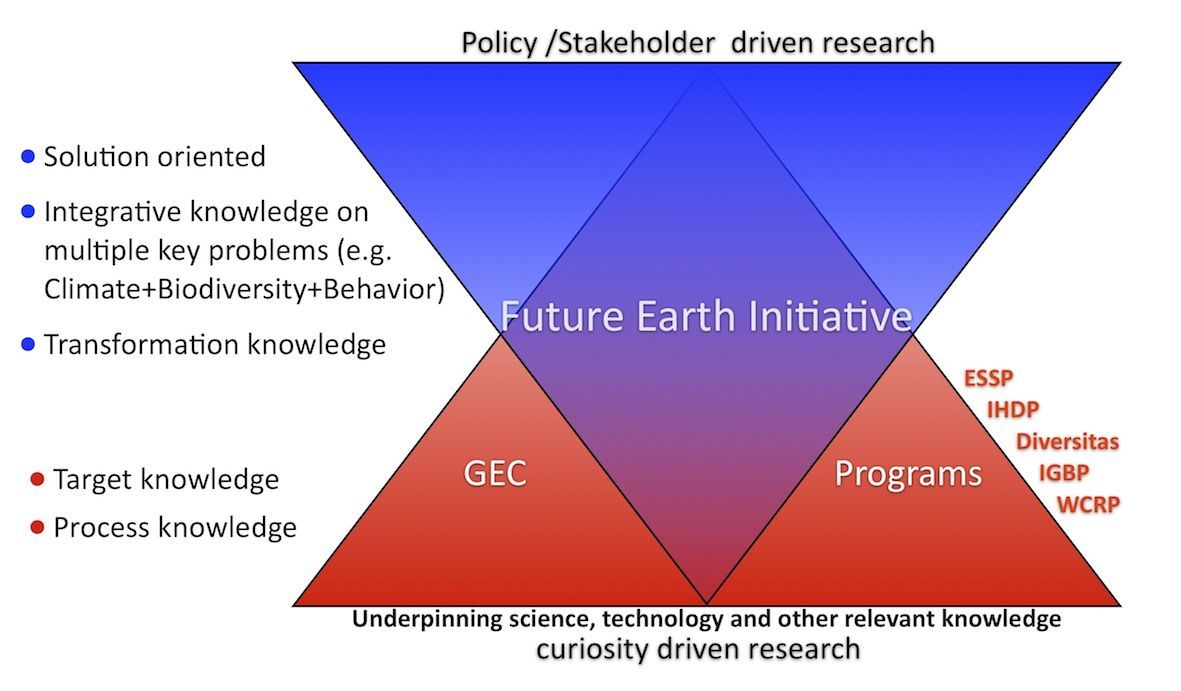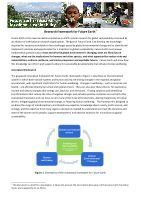Future Earth has evolved - needs strong national and regional nodes
The concept of the Future Earth research program for global sustainability has evolved substantially since its first draft from summer 2012. Future Earth now actively tries to integrate the core projects of the present global change programs.

The main goal of Future Earth remains: to answer fundamental questions about how and why the global environment is changing, what are the likely future changes, what are the implications for humans and other species and what opportunities reduce risks and vulnerabilities and enhance resilience in all regions of the world. But now Future Earth explicitly acknowledges that not all projects must be co-designed by stakeholders, and the need of fundamental research activities as equal parts (Figure).
The research is grouped around three key research themes:
- Dynamic Planet (process understanding) includes the observation, projection and understanding of the earth system as well as environmental and societal trends. Some of the topics are already addressed within existing GEC projects.
- Global Development (target knowledge) containing the knowledge about targets for a sustainable, secure and fair stewardship of the key problem such as food, water, ecosystem services, energy.
- Transformation toward Sustainability (transformation knowledge): Understanding transformation processes and how to manage change across sectors and scales respecting human values.
For further reading: Future Earth Program


